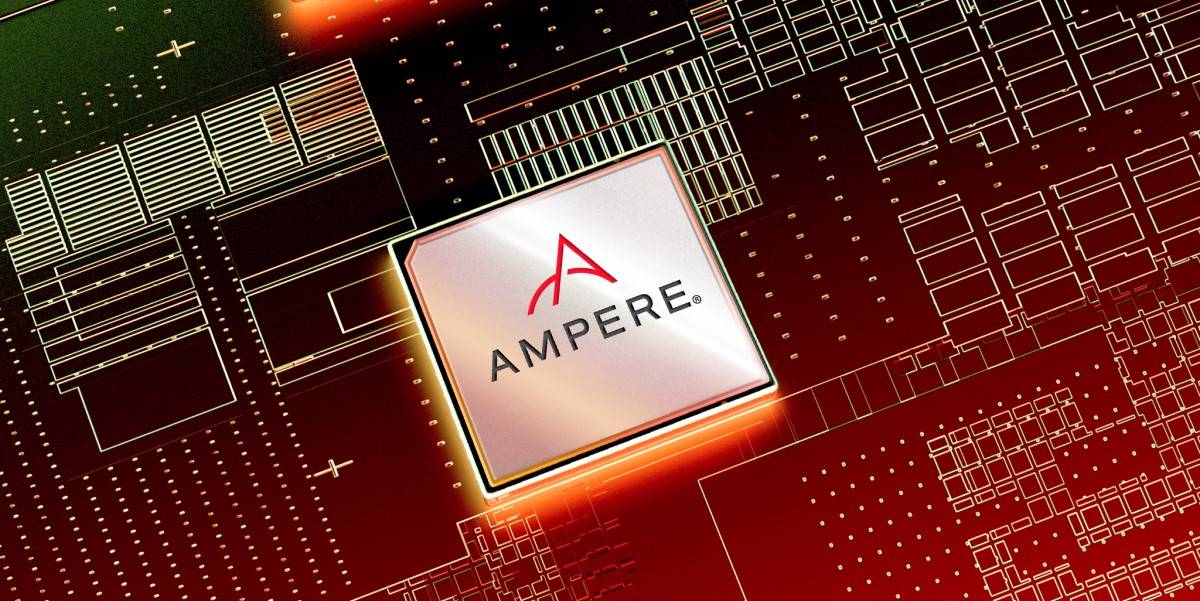Ampere Bets On Arm To Muscle Into Intel's Telco Territory

Ampere Computing is looking to target the telecoms market with its Arm-based server chips, hoping to take a slice of the growing compute needs of 5G and edge processing, which it believes Intel is no longer best served to meet.
Ampere – which has already won a stake in the cloud server arena with customers such as Google Cloud, Microsoft Azure, and Oracle Cloud – claims its chips are well suited for telco workloads because of their high core density, energy efficiency, and scalability.
At MWC in Barcelona next week, Ampere will be showcasing the industry backing it has for its Arm-based Altra processors, including servers from Supermicro, OS support from Linux firms SUSE and Canonical, and OpenRAN stacks from SynaXG, Parallel Wireless, and Fujitsu.
Chief product officer Jeff Wittich told The Register that Ampere remains focused on the cloud market, but is aiming to expand beyond that customer base.
"What's becoming really clear is that a lot of these adjacent markets that either connect to the cloud or have similar software stacks to the cloud, they're also able to take advantage of our processors, and one of those areas is telco," he said.
AI also plays a part at the moment, of course, and Ampere has previously touted its chips as a more cost-efficient way of handling inferencing than GPU-stuffed servers – a similar claim to what Arm itself is making.
"A couple years ago, there were data-heavy workloads that were kind of increasing the compute requirements in the edge, but not as dramatically as what's happened in the last year or two, where things like LLMs (large language models) really push the requirements up, if you want to perform those AI operations in the edge or in telco, which increasingly folks are looking to do," Wittich claimed.
The move to technologies such as software-defined networking has seen the growing use of servers being used in the telecoms space, and this is an area Intel has long addressed as the leading processor maker. But Wittich claims that a shift is now happening.
"I think we're really kind of in third wave of telco computing," he said. "If you go back pre-virtual network functions, you had your big appliances, and that was the first wave, then you had the introduction of SDN, NFV, and telcos were trying to commoditize the compute and use white-box solutions."
- Oracle owns nearly a third of Arm chip house Ampere, could take control in 2027
- Intel, Ampere show running LLMs on CPUs isn't as crazy as it sounds
- Scaleway Ampere servers promise AI smarts without breaking the bank
- Ampere leads a pack of AI startups to challenge Nvidia's 'unsustainable' GPUs
"Frankly, there's a lot of Intel white-box solutions that people are using. They certainly have dominant share there," Wittich said, but added "I don't think that Intel is in as strong of a position today as they were ten years ago to address this market. There's a potentially large shift in the underlying architecture away from x86 at the same time, because you need a lot of performance in a low-power environment. It's kind of a perfect time for Arm-based processors to go and take hold in the telco space."
The company is positioning its Altra processors for the telco space, but Wittich said Ampere has continued to optimize its CPU cores to improve inference performance in the newer AmpereOne family, while the next-gen AmpereOne Aurora with up to 512 cores, announced last year, will be "heavily AI-focused, but it's AI inferencing."
Like Arm, Ampere expects inferencing will be ubiquitous, and so "inference demand is going to go up significantly over the next couple of years, and it represents an insane amount of compute across the market," according to Wittich.
"So we're trying to solve that scale-out problem for inference. So if we can bring down the power of inference, bring down the cost of inference, that's going to solve what I think is really going to be the biggest, most pressing problem for the next couple of years." ®
From Chip War To Cloud War: The Next Frontier In Global Tech Competition
The global chip war, characterized by intense competition among nations and corporations for supremacy in semiconductor ... Read more
The High Stakes Of Tech Regulation: Security Risks And Market Dynamics
The influence of tech giants in the global economy continues to grow, raising crucial questions about how to balance sec... Read more
The Tyranny Of Instagram Interiors: Why It's Time To Break Free From Algorithm-Driven Aesthetics
Instagram has become a dominant force in shaping interior design trends, offering a seemingly endless stream of inspirat... Read more
The Data Crunch In AI: Strategies For Sustainability
Exploring solutions to the imminent exhaustion of internet data for AI training.As the artificial intelligence (AI) indu... Read more
Google Abandons Four-Year Effort To Remove Cookies From Chrome Browser
After four years of dedicated effort, Google has decided to abandon its plan to remove third-party cookies from its Chro... Read more
LinkedIn Embraces AI And Gamification To Drive User Engagement And Revenue
In an effort to tackle slowing revenue growth and enhance user engagement, LinkedIn is turning to artificial intelligenc... Read more

